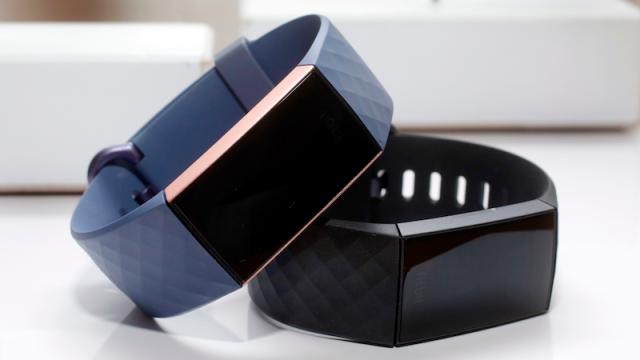Philips is accusing two of the highest profile players in the wearables market, Fitbit and Garmin, of stealing its propriety technology, and it wants the companies to be brought to justice. Specifically, it is asking for Fitbit and Garmin, along with three other companies, to pay tariffs or be subjected to an import ban.
The U.S. International Trade Commission announced on Friday that it was investigating specific “wearable monitoring devices, systems and components” in light of a complaint filed by Philips’ parent company and its North American subsidiary. The complaint alleges that certain companies have infringed on Philips’ patents or misappropriated its intellectual property.
In addition to Fitbit and Garmin, the complaint also accuses Ingram Micro Inc., Maintek Computer and Inventec Appliances of violating Philips’ intellectual property rights.
According to The Verge, the case is based on four patents owned by Philips related to smartwatch and fitness tracker functions like motion tracking and alarm reporting, among others. Philips claims that it has tried to negotiate licensing agreements with Fitbit and Garmin for three years, but that the talks had ultimately broken down.
“Philips expects third parties to respect Philips’ intellectual property in the same way as Philips respects the intellectual property rights of third parties,” a company spokesperson told The Verge.
If you scratched your head when you began reading this article and tried to remember exactly what wearables Philips makes, you’re not alone. Fitbit and Garmin are household names because they’ve been major players in the worldwide wearables market since 2014, according to data published by Statista. Additionally, in December, the market research firm IDC designated Fitbit as one of the top five wearable companies worldwide by shipment volume in the third quarter of 2019.
Nonetheless, Philips did indeed launch its own smartwatch in 2016, the Health Watch. Contrary to smartwatches and fitness trackers, Philips positioned its wearable as primarily a health device. The Health Watch, which has a $US249.99 ($362) price tag, has a simple design that is not necessarily what I would consider sleek. It also offers limited features, all of which are focused on health, that are also available in other wearables.
The Health Watch lets users monitor their heart rate, get insights on their breathing, track their steps, monitor their sleeping habits and control calories. The watch also comes with an app, which Philips claims offers users the opportunity to monitor their vitals and get “personalised feedback and advice” on their health.
Currently, the Health Watch is not available for purchase on the Philips USA website, which features a message that says, “Unfortunately, this product is no longer available.” Besides the Health Watch, Philips also offers more specialised wearable devices for the healthcare sector.
Fitbit has rejected Philips’ accusations and said that the complaint is related to Philips’ failure in the wearables market. In a statement to Reuters, it said that it would defend itself vigorously against all accusations made in the complaint. Fitbit was acquired by Google for $US2.1 ($3) billion at the end of last year.
“We believe these claims are without merit and a result of Philips’ failure to succeed in the wearables market,” Fitbit said.
Gizmodo has reached out to Philips to ask whether the company had any response to Fitbit’s characterisation of its complaint. We also asked whether the company could confirm if the Health Watch was still available or whether it had been discontinued. Gizmodo will update this article if we hear back.
